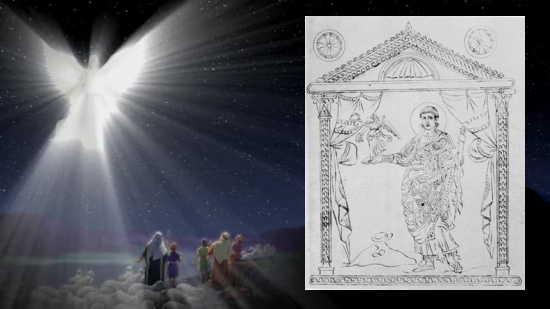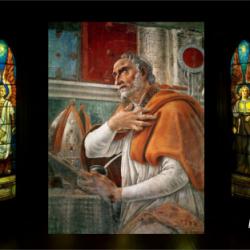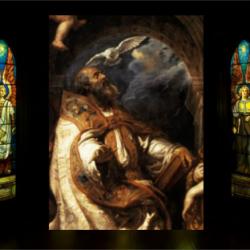 St. Asterius of Amasea gives us a good working definition of covetousness, and explains that this sin—wanting more than you deserve—was what made the devil fall from Heaven.
St. Asterius of Amasea gives us a good working definition of covetousness, and explains that this sin—wanting more than you deserve—was what made the devil fall from Heaven.
Covetousness, then, is not simply being mad for money and other posses- sions, wishing to add to what you have that to which you have no right. To speak more broadly, it is the desire to have, in every transaction, more than what’s due or belongs to you.
And you know that the devil was the first to have this fault. He was an arch- angel, and appointed to the most honorable life and station; but the arrogant creature conceived of absolute rule, and rebellion against God, and was cast down from Heaven after that, and, falling into this atmosphere of earth, he became your malicious neighbor.
So he did not get the divinity to which he aspired, and he lost the rank he had enjoyed of being archangel. He was an unfaithful servant, changed by gradu- ally increasing audacity into a robber. He was like the dog of the Greek fable, who was both deprived of his meat and failed to grasp the shadow—for how could he grasp an intangible thing? –St. Asterius of Amasea, Sermon 3: Against Covetousness
IN GOD’S PRESENCE, CONSIDER . . .
We live in a world where covetousness seems like a virtue. Do I long, like Lucifer, for more than I need or deserve? How can I overcome that longing? Will it help to remember that God is ready to give me, not only more than I deserve, but more than I can possibly imagine?
CLOSING PRAYER
Lord, sanctify me through the ministry of your holy angels, and free me from all covetousness, and from every disposition that is not in accordance with your will.
____________________________________________________________________________________________________________
Remember to subscribe to my feed so you will not miss a day! This recurring feature at The Catholic Blogger is possible through the cooperation of author Mike Aquilina and publisher Saint Benedict Press. To get your own copy of this book, click below.












